In recent months and weeks, prices of precious metals – gold, silver, platinum, palladium, and rhodium – have been reaching new historical or multi-year record highs.
Still, when investing in precious metals, you should remember that each precious metal is precious in its own unique way.
Investing in gold is actually boring. First, gold prices are much more stable compared to most other assets, particularly during periods of crisis.
Second, during periods of instability and higher price volatility, the price of gold tends to have a negative correlation with the prices of other assets (see Picture 1 below).
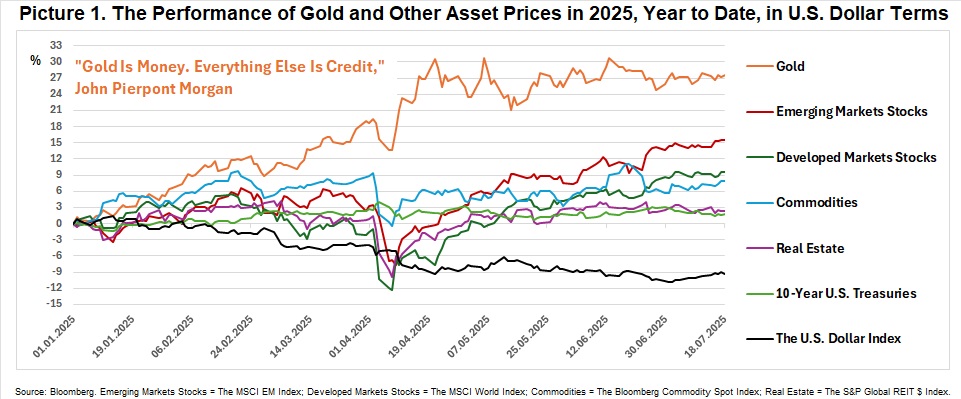
Third, the price of gold almost always climbs when the U.S. dollar exchange rate declines and real, or inflation-adjusted, interest rates fall.
Investing in gold will not make you rich. But in the long run gold maintains its purchasing power very well.
A potential breakout of silver prices above $50 per one Troy ounce or even $100 per one Troy ounce spurred by the current rally in crypto and gold prices has been one of the hottest investing topics in recent months.
From a historical perspective, silver is highly undervalued relative to gold. This is evidenced by a steep rise in the gold-to-silver price ratio (see Picture 2 and Picture 3 below).
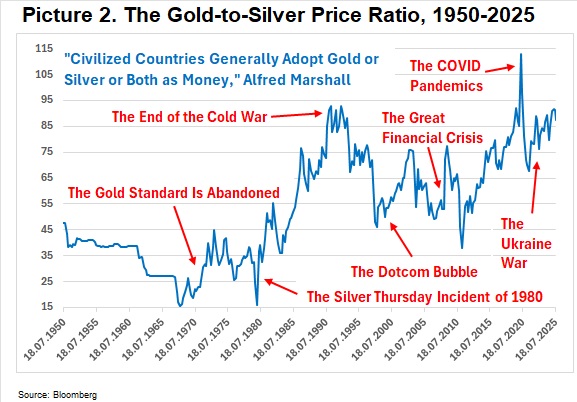
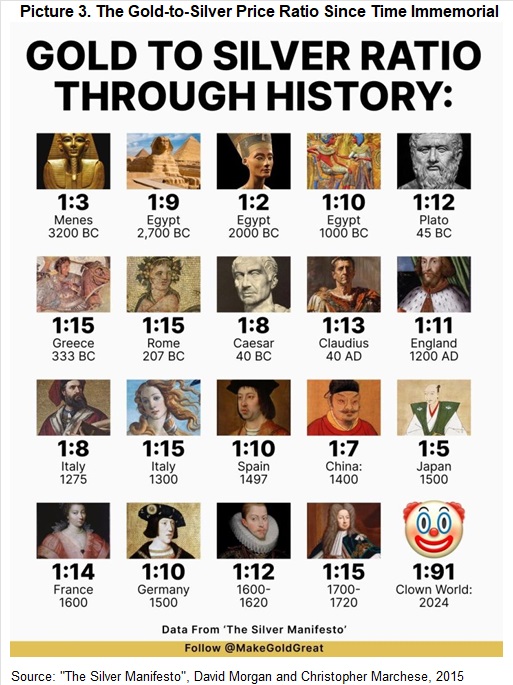
However, your should remember that investing in silver is somewhat similar to investing in cryptos. Expect high intraday price volatility (see Picture 4 below).
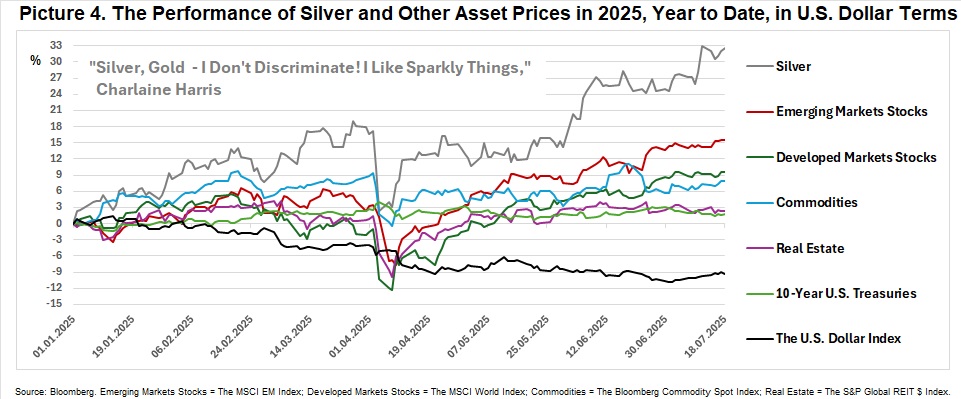
Historically, gold was used to store value, while silver – the poor man’s gold – was used for transactional purposes.
These days silver is primarily an industrial metal. But most working – and still poor and indebted – people still cannot afford investing in gold today. Thus, if you find investing in gold boring, just add some silver to your portfolio. And I promise you that your investing life will become much more exciting.
Platinum and palladium are more exotic precious metals. This is despite the fact that the Europeans encountered platinum (“white gold”) in Central and South America back in the 16th-18th centuries. Platinum was a rarer metal than gold and for a long time its price was higher than the price of gold. That is why in the music industry, “going gold” refers to the sale of 500,000 records (albums or singles), while “going platinum” represents the sale of 1,000,000 records.
Palladium has also been known to Europeans for quite a long time since the early 19th century. And it is also a rarer metal compared to gold with the main palladium deposits being located in just four countries: Canada, the United States, South Africa, and Russia.
Platinum and palladium are actively used in catalytic converters in the automotive industry. In recent years, both metals have become innocent victims of a fading electric vehicle mania similarly to lithium whose price was down by more than 80% at one point.
But for those who are ready to invest in even more exotic precious metals, there is rhodium. It is the rarest and the most expensive precious metal of all. If platinum and palladium are from 15 to 30 times rarer than gold, then rhodium is 100 times rarer.
Rhodium is also used in catalytic converters, while its major deposits are found only in two countries: South Africa and Russia.
The price of rhodium is extremely volatile. During the crypto and meme coin craze in 2020 and 2021, it rose almost 10 times to reach $29,500 per Troy ounce.
Since then it has fallen by 70%. Still, rhodium with its current price of $5,800 per one Troy ounce is still substantially more expensive than gold with its price of $3,345 per one Troy ounce.
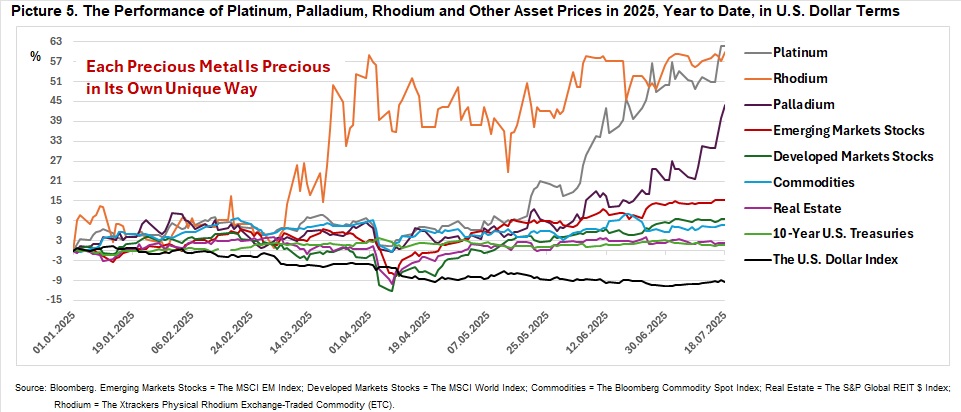
One of the best ways to invest in precious metals is to buy exchange-traded funds (ETFs) that use client funds in order to buy physical metals stored in warehouses in Switzerland, the United Kingdom, or Germany.
Almost all major ETF issuers – Invesco, iShares, Xtrackers, Amundi, Wisdomtree, SPDR, and others – have physical gold or silver ETFs available for both professional and retail investors these days.
For particularly conservative investors, there is a German-domiciled Xetra-Gold ETF which is a joint project of the Frankfurt Stock Exchange (Deutsche Börse) and major German banks with the participation of private Swiss banks. It provides an opportunity to withdraw your investments in the fund in the form of physical gold.
There are also funds that allow investors to invest in physical platinum and physical palladium ETFs issued by Invesco or Wisdomtree, for example.
Still, the most rational way of investing in precious metals would be to buy a physical precious metals basket like the Wisdomtree Physical Metals ETF or any other similar instrument. This ETF invests around 60% of funds in gold, around 22% in silver, 12% in palladium, and 6% in platinum, thus providing exposure to all four major precious metals.
Is it possible to invest in physical rhodium? Yes, it is. Though as of today only professional investors have been able to do it by investing in the Xtrackers Physical Rhodium ETF. However, the ETF market is very dynamic these days. That is why just keep asking your broker whether this fund has become available to retail clients too.
What is the morale of this precious metals story? The gold standard was completely abandoned in 1971. Since then the price of gold has risen 75 times in terms of U.S. dollars, while the price of silver has risen 28 times (see Picture 6 below). The Swiss franc is justifiably regarded as “paper gold” due its relative stability. Still, its exchange rate has appreciated “only” 4.8 times in terms of U.S. dollars since 1971.
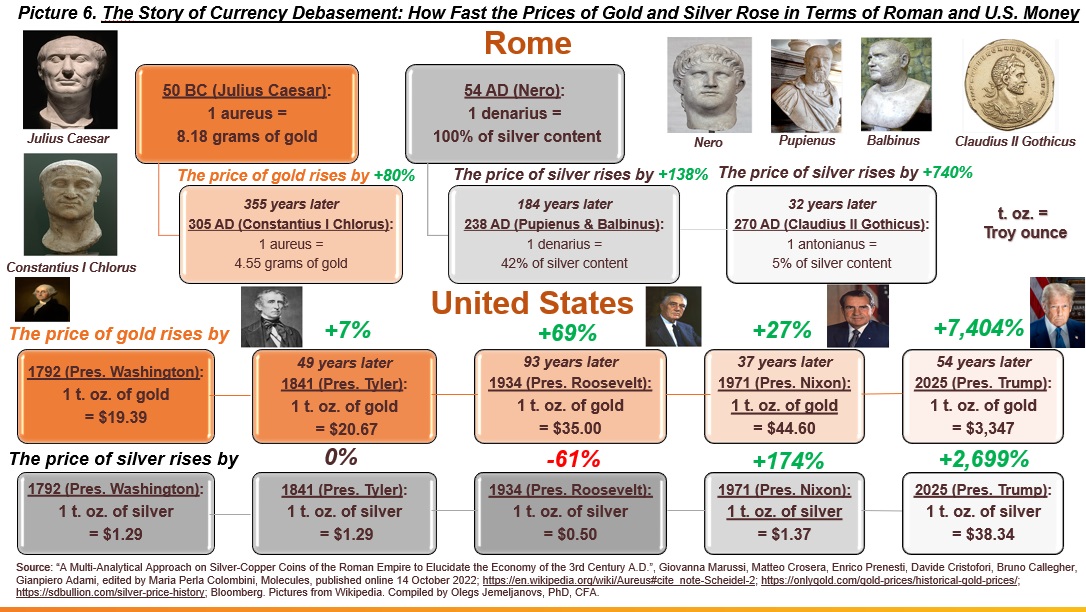
The famous economist John Maynard Keynes once called the gold standard system a “barbaric relic,” while the late business partner of the equally famous investor Warren Buffett Charlie Munger believed that “…civilized people don’t buy gold.” Still, gold’s, silver’s, and other precious metals’ appeal as investment products, safe assets, and simply as jewelry metals does not show any signs of decline.
Robert Kiyosaki explained this peculiar fact very well, “Commodities such as gold and silver have a world market that transcends national borders, politics, religions, and race. A person may not like someone else’s religion, but he’ll accept his gold.” In the other words, these are the safest investments on Earth, period.

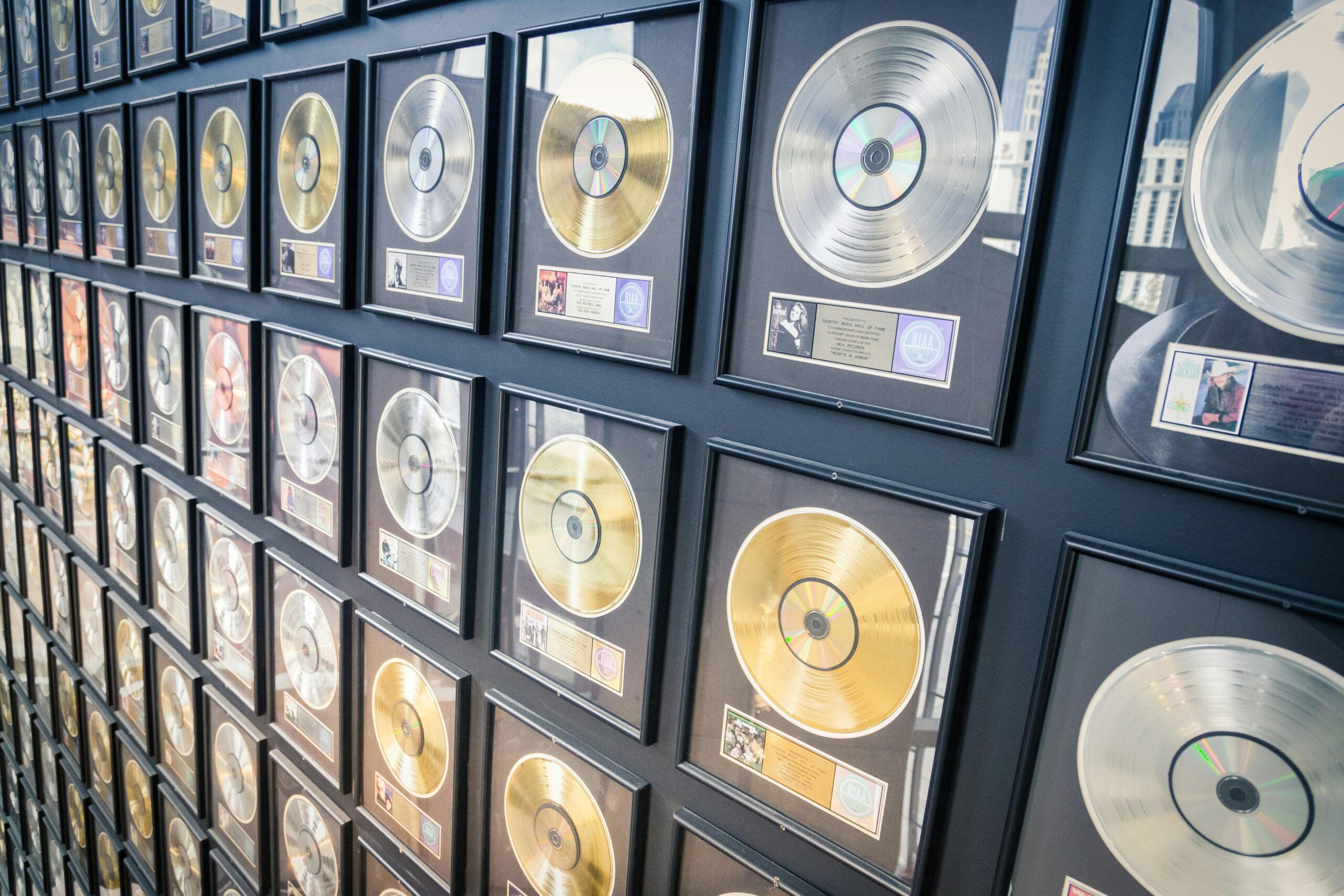
Great Post